This post was written by Louis St. Hilaire
We’ve just shipped a free update to the Clementine Vulgate, which adds morphological and lemma tagging to the Latin text.
This tagging is important for a few reasons. First of all, it allows you to quickly see possible parsings of a word by hovering over it. Secondly, it lets you quickly look up a word in a lexicon such as Lewis & Short no matter what form the word is in.
Most importantly, though, it lets you use Verbum’s Morph Search to perform powerful searches by lemma or morphological form. Just right-click a word, select “Lemma” or a specific morphological form on the right, then select Morph search on the left. [click the image to enlarge]
This makes it easy to study the usage of a particular word across the Vulgate. For instance, I can use the search on Lemma for “pereo” to find all occurrences of this verb in the Vulgate, regardless of form:
Or I can search for a specific form, such as all occurrences of “pater” in the accusative singular:
Note that, at this point, we’ve just used an automated process to apply the tagging. This means that some words might have been missed and forms that are ambiguous are just tagged with all the possible parsings. Nonetheless, this tagging represents an important step forward for Latin functionality in Verbum and enriches the text substantially.
The Clementine Vulgate is included in all our Verbum libraries, and you can learn more about morphological searching in Practicum.

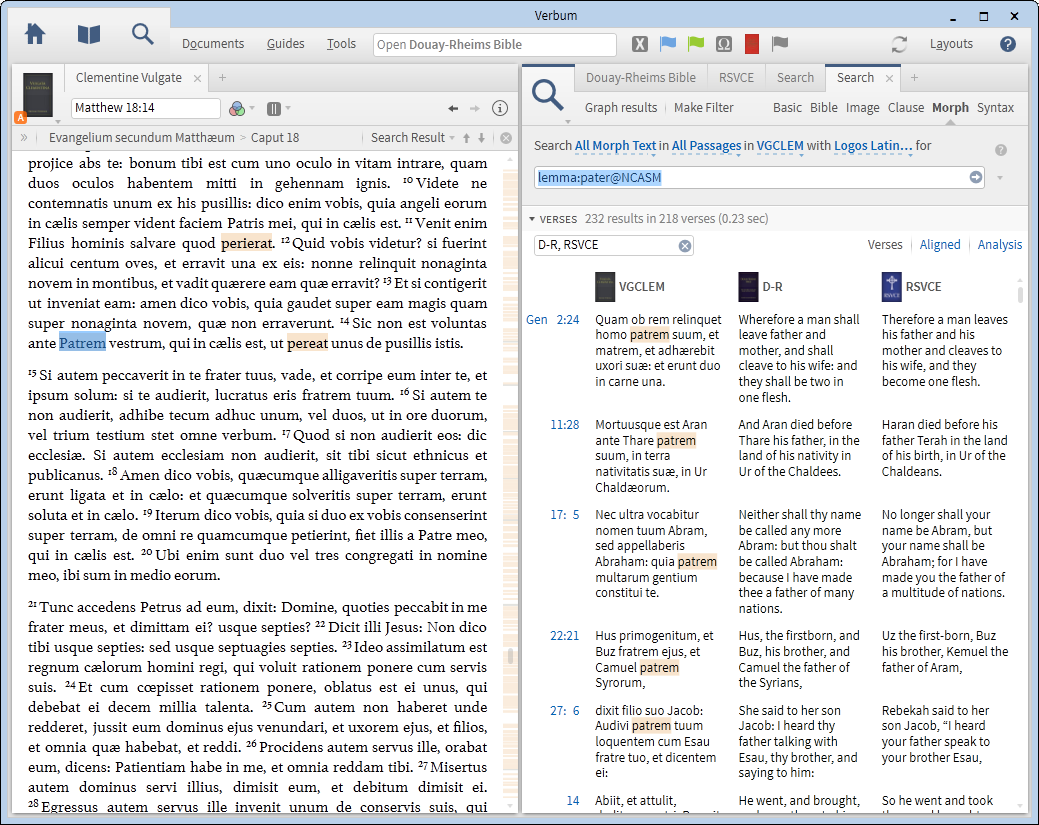
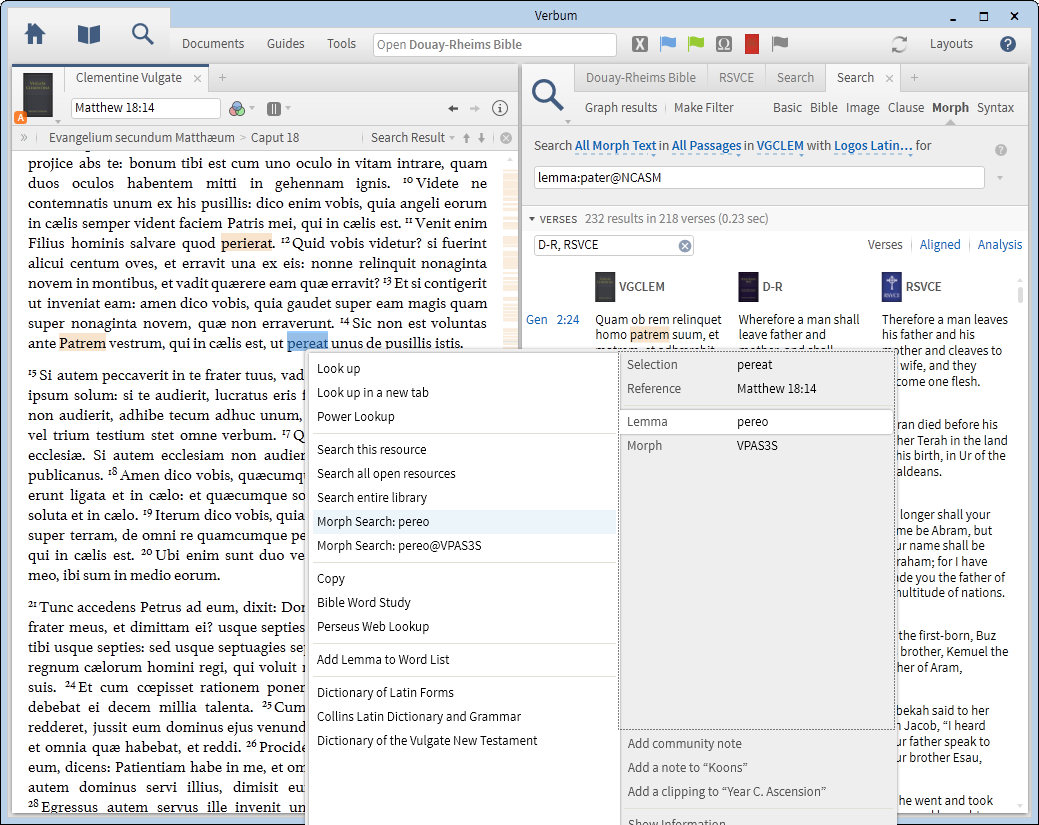
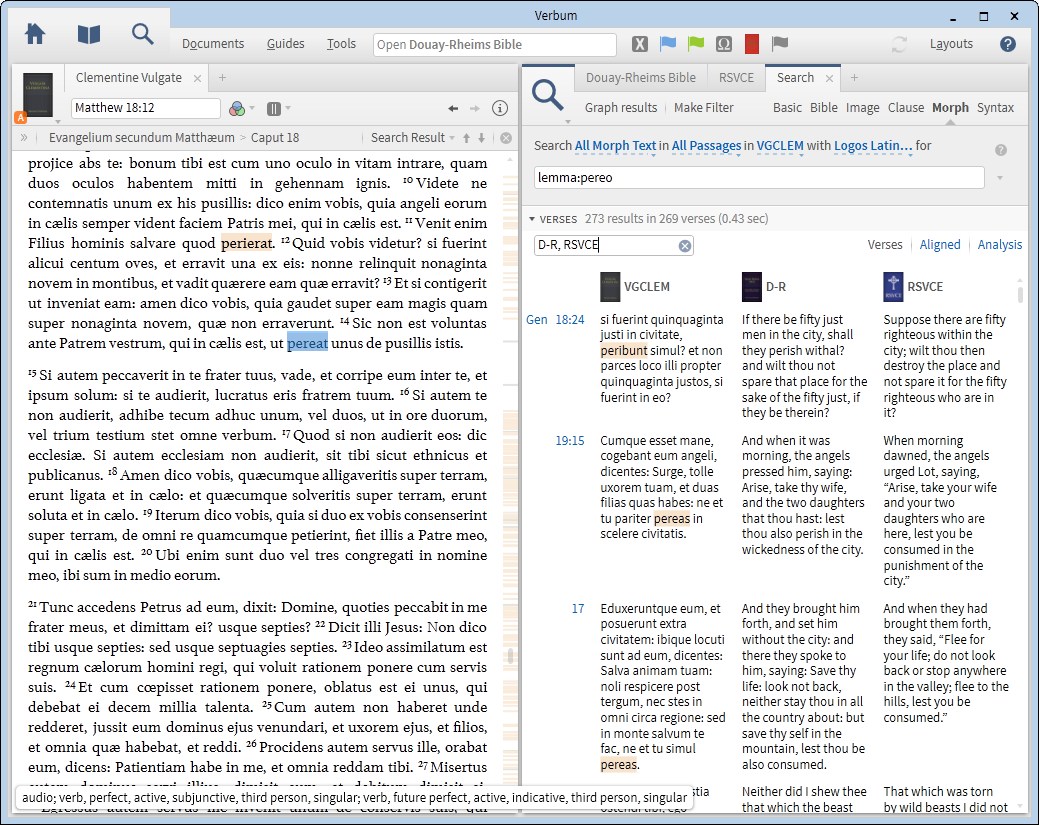

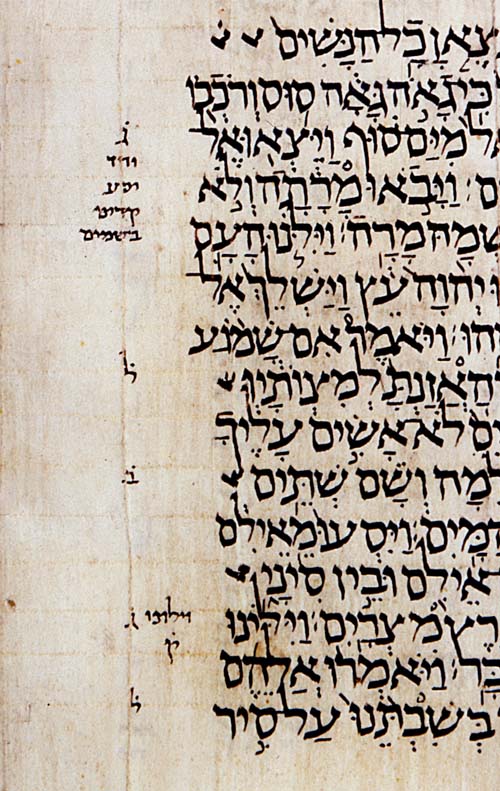

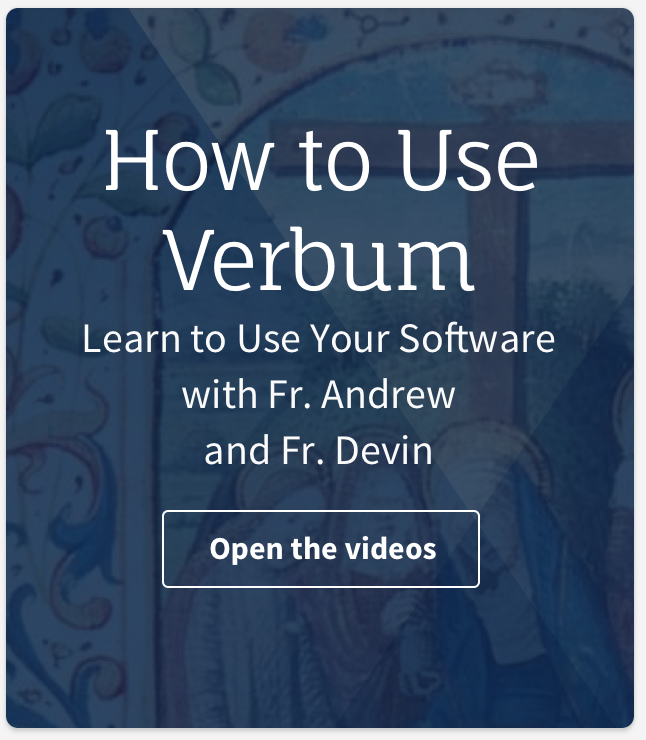
This is pretty cool! You can setup link sets with the Clementine Vulgate and D-R and kind of have a pseudo reverse interlinear for the D-R. Thank you Logos for continuing to add value and capability to our Verbum libraries.